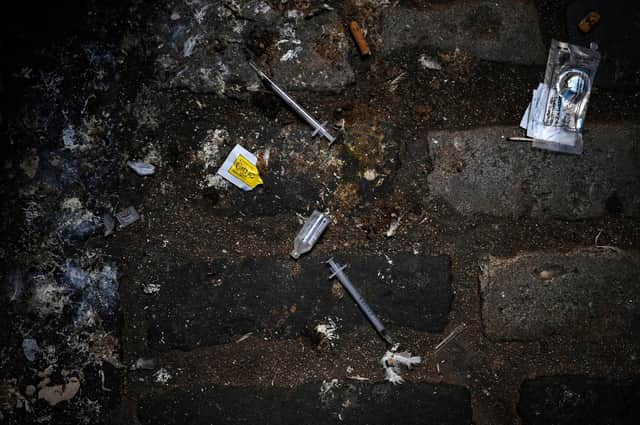Scotland's drug-death crisis: How treating addicts as well as cancer patients would make a real difference – Karyn McCluskey


A friend recently found a lump, phoned her GP, was seen on the day and referred immediately. The GP explained about the pathway that deals with suspected cancers: a referral to a breast clinic with a date within a few weeks, the investigations that would be undertaken, the mammogram, the ultrasound, the examination by a specialist.
And so it came to pass, my friend awaited the appointment, turned up at the clinic, had a range of investigations, and thankfully learned there was no evidence of malignancy. Why do I tell you this?
Advertisement
Hide AdAdvertisement
Hide AdBecause she was reassured by the pathway: didn’t feel stigmatised, knew what to expect in relation to time-frames, understood the standards that had been set and what might happen after. She felt cared for, important to the professionals and knew the end goal was to seek to cure.
So why don’t we have a pathway for those in addiction? I know so many people who feel second best, accept being palmed off, stigmatised and have no expectation of the same standards of care. They, and their families, do not feel reassured. They feel desperate, and dismissed. Yet I wonder what the level of mortality is for those in the grip of addiction? Same as some cancers perhaps.
If we are to reduce the torment of those who are in addiction, we must embrace a paradigm shift.
What if, when you reached out for help with your addiction, you were seen by a GP the same day; they needed, wanted, to see you face to face. You were given immediate treatment for some of your symptoms and then started on the pathway to dedicated services: the referral done there and then.
You’re told that you will be seen within two weeks, you can expect this; you’ll have bloods taken, a full exam and be treated with dignity and respect. They’ll ask you about your broader health and well-being, your mental health, the trauma that’s usually present.
The goal will be to cure you, to restore your health and well-being, not treat it palliatively. There would be centres to support you, like the phenomenal Maggie’s units, which are warm, welcoming, holistic and provide you with the support you (and your family) need to manage your addiction and get to a better state of being.
You don’t feel stigmatised, you feel cared for, respected and worthy of that respect. Your family knows that you’re in good hands. They worry, who wouldn’t, but they know you are a priority.
Don’t read this and hit the target but miss the point. I know addiction is not cancer, I know there are not cells mutating and multiplying in organs around the body, causing addiction, but it is a progressive condition.
Advertisement
Hide AdAdvertisement
Hide AdI know what good care looks like, and to me it looks like the cancer pathway. When deaths from drugs and trauma are in the press again, when we wring our hands and lament the loss of souls across Scotland think about what it feels like to beg for help, and feel like you are shouting into the void.
Karyn McCluskey is chief executive of Community Justice Scotland
A message from the Editor:
Thank you for reading this article. We're more reliant on your support than ever as the shift in consumer habits brought about by coronavirus impacts our advertisers.
If you haven't already, please consider supporting our trusted, fact-checked journalism by taking out a digital subscription.
Comments
Want to join the conversation? Please or to comment on this article.
